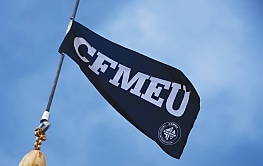
A company has been hit with an “enforceable undertaking” after underpaying workers. What does this term mean, and how can it be helpful for businesses and their employees?
According to SafeWork, an “enforceable undertaking” is an alternative to prosecution, meaning companies that violate workplace law can bypass the courts.
SafeWork describes it as “a legally binding agreement between us and the person who proposed the undertaking. The person is obliged to carry out the specific activities outlined in the undertaking. The activities may be substantial.”
However, enforceable undertakings can only be conducted if they demonstrate three key principles:
- Benefits to the workplace
- Benefits to their industry
- Benefits to the community
One company that has recently landed in this situation is Starbucks, which has recently back-paid staff across the country millions of dollars after entering an enforceable undertaking with the Fair Work Ombudsman.
The organisation self-reported non-compliance back in 2020 after discovering that staff had been underpaid. Now, over $4.5 million has been given back to staff across 52 stores in Sydney, Melbourne, Brisbane and the Gold Coast.
The majority of underpayments were caused by Starbucks’ failure to pay part-time staff the correct overtime pay they were entitled to under the Fast Food Industry Award 2010 and the Fast Food Industry Award 2020. Employees ranged from baristas to supervisors and assistant managers.
Fair Work Ombudsman Anna Booth said an enforceable undertaking was allowed because Starbucks self-reported its breach and was working cooperatively to resolve the issue.
“Under the enforceable undertaking, Starbucks has committed to implementing stringent measures to ensure workers are paid correctly. These measures include engaging, at the company’s own cost, audits of its compliance with workplace laws over the next two years,” explained Ms Booth.
“This matter demonstrates how important it is for employers to place a high priority on their workplace obligations. For Starbucks, a failure to have written agreements in place for part-time staff and a set-and-forget approach to paying some full-time staff on annual salaries resulted in significant underpayments and rectification costs.”
She added: “Employers need to be aware that taking enforcement action to protect young workers and improve compliance in the fast food, restaurant and cafe sector are priorities for the Fair Work Ombudsman.”
Around $4.34 million was paid in wages and entitlements by Starbucks. Another $180,000 in interest and over $40,000 in superannuation was also required to be paid. A total of 2,427 current and former employees who were underpaid between 2014 and 2020 are receiving these payments, ranging from $20 to $18,574. The average back payment is $1,883.
Jack Campbell
Jack is the editor at HR Leader.










